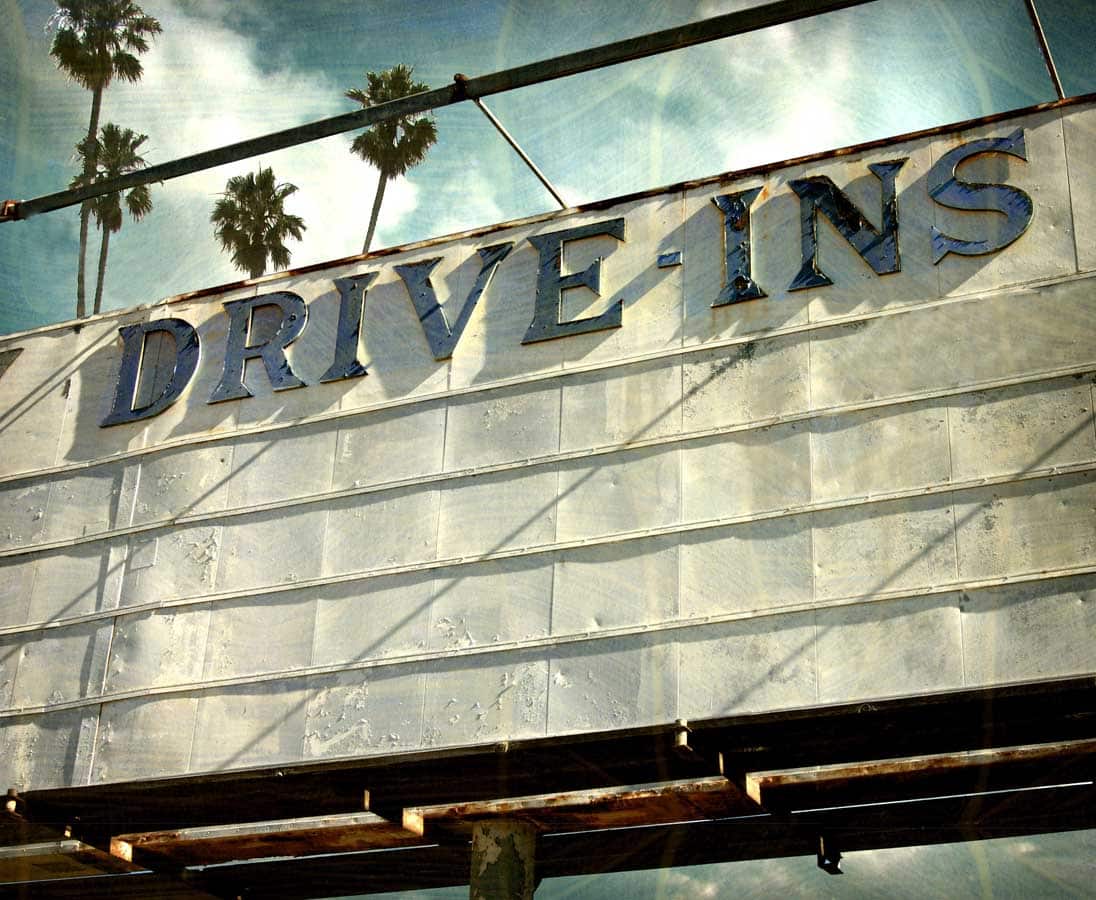
Jump to a section:
Movie theaters offer a timeless form of entertainment—bringing blockbusters, indie flicks, or special screenings to audiences seeking an immersive cinematic experience. Yet the industry faces stiff competition from streaming services, at-home entertainment setups, and a wide range of leisure activities. PPC advertising on Google Ads can help theaters stand out, targeting potential moviegoers precisely when they’re searching “movies near me,” “showtimes for [Film Title],” or “best theater in [City].”
However, marketing movie theaters online comes with nuances: timely showtime updates, rapid changes in film lineups, and local competition from multiplexes or boutique cinemas. This article unveils how to create an impactful PPC strategy for theaters—structuring campaigns around now-playing or upcoming films, highlighting unique amenities (IMAX screens, luxury seats), and employing remarketing to keep your venue top-of-mind for frequent moviegoers. By implementing these tactics alongside robust conversion tracking, your theater can attract local film fans, boost ticket sales, and build loyalty in an age of at-home streaming alternatives.
Key PPC Challenges
- Showtime & Content Fluidity
Films come and go quickly. Ad content must stay current with the latest releases or special events (live screenings, film festivals), requiring frequent updates. - Competition from Streaming Services
With Netflix, Disney+, and other platforms competing for leisure time, theaters must underscore the unique, immersive experience they offer—like big screens and Dolby sound. - Location Sensitivity
Prospective customers typically search for theaters near them or check showtimes in their immediate area. Targeting must be fine-tuned to avoid wasted clicks from out-of-reach audiences. - Movie-Specific or Theater-Specific Queries
Some moviegoers search for a film title plus “showtimes,” while others look for “movie theaters near me.” Ads and landing pages must handle both approaches effectively. - Price & Promotion
Ticket discounts, loyalty programs, or concession deals can sway cost-conscious patrons—especially families. Ads must effectively communicate such promotions, but also keep them updated to avoid mismatched expectations.
Custom PPC Strategies
- Now Playing vs. Upcoming Releases
- What It Entails: Segment campaigns into “Now Playing” (immediate, short-term results) and “Upcoming Movies” (pre-promotions, advanced ticket sales). Update ads as film lineups change.
- Why It Works: Ensures that each film’s showtimes are promoted timely, capturing interest from fans eager for a new release or planning ahead.
- Highlight Premium Experiences & Amenities
- What It Entails: If you have IMAX screens, 4D seats, Dolby Atmos sound, or luxury recliners, mention them in ad copy. Possibly reference advanced online seat selection.
- Why It Works: Differentiates your theater from standard ones. Many moviegoers prefer a premium cinematic experience they can’t replicate at home.
- Geo-Targeting & Showtimes
- What It Entails: Focus ads on your theater’s local radius—mention “5 minutes from downtown” or “easy parking.” Link to a real-time showtimes page.
- Why It Works: People typically search for close, convenient theaters. Detailed showtime info or one-click booking fosters immediate conversions.
- Promote Loyalty & Concession Deals
- What It Entails: If you run a rewards program or discount combos, highlight them: “Earn free tickets,” “Discount Tuesdays,” or “Family Pack—Popcorn & Drinks for $X.”
- Why It Works: Price or concession bargains can sway casual moviegoers to choose your theater over similarly priced rivals.
- Tie Into Film-Specific Keywords
- What It Entails: Bid on queries like “[Film Title] showtimes [City]” or “tickets for [Movie Title].” Possibly mention prime timeslots or special screenings.
- Why It Works: People searching for a particular movie plus showtimes are extremely high-intent. They’re deciding which theater to attend, so top SERP presence is critical.
Keyword Strategy
- Generic Theater Terms: “movie theater near me,” “cinema in [City],” “film showtimes [City],” “best theater for IMAX.”
- Film-Specific: “[Movie Title] showtimes near me,” “where to watch [Movie Title],” “tickets for [New Release].”
- Amenities & Deals: “luxury seating theater,” “discount movie tickets [City],” “cheap matinee showtimes,” “movie loyalty program.”
- Event & Special Screening: “live stream of opera at theater,” “anime special screening near me,” “film festival showtimes,” “retro movie nights.”
- Negative Keywords: “movie reviews,” “online streaming,” “DVD release,” if not relevant to in-theater attendance.
Ad Copy & Extensions
- Emphasize Current & Upcoming Films
- Headline Examples: “Now Showing: [Big Release]—Book Tickets,” “Catch [Movie Title] in IMAX—Tonight Only,” “New Releases at [Theater Name].”
- Description: “Enjoy comfortable recliners, premium sound, & fresh concessions. See showtimes & buy tickets online—fast & easy!”
- Why It Works: Showcases the latest blockbusters or special screenings, hooking potential moviegoers who specifically search for those films.
- Use of Extensions
- Sitelinks: “Now Playing,” “Upcoming Films,” “Special Screenings,” “Discount Tuesday,” “Membership Rewards.”
- Callout Extensions: “Recliner Seating,” “Online Ticketing,” “Matinee Discounts,” “Family Combo Deals.”
- Structured Snippets: “Formats: 2D, 3D, IMAX, 4DX.”
- Strong CTAs
- Examples: “Buy Tickets Now,” “Reserve Your Seat—Limited Seats,” “Get Showtimes & Book Today,” “Join Our Loyalty Club—Earn Free Popcorn.”
- Why They Work: Encourages immediate seat reservation or membership sign-ups. Particularly effective for popular new releases with limited seat availability.
- Social Proof or Awards
- What It Entails: If your theater is recognized by local publications or has a high rating on Google, mention “Voted #1 Theater in [City],” “4.7 stars from 2k reviews.”
- Why It Works: People want a comfortable, high-quality movie experience. Third-party recognition fosters trust.
Landing Page Best Practices
- Showtime & Ticket Purchase Integration
- What It Entails: Present an up-to-date schedule for each film. Offer one-click ticket purchase or seat selection, if possible.
- Why It Works: Minimizes friction. The less complex it is to see times and buy tickets, the more likely a prospect completes the transaction.
- Theater Features & Amenities
- What It Entails: Display photos or short videos showing comfortable seats, large screens, snack bars, or bar areas. Possibly highlight convenience (parking, public transport).
- Why It Works: Entices those who care about seating quality or unique offerings like craft beer or gourmet snacks—especially if comparing multiple theaters.
- Mobile Responsiveness
- What It Entails: Ensure pages load fast, look good on mobile. Display “Tap to Call” or “Tap to Book” buttons for easy navigation.
- Why It Works: Many moviegoers check showtimes on the go. A seamless mobile experience leads to more spontaneous ticket purchases.
- Promotions & Loyalty Program
- What It Entails: If you have a membership card or frequent moviegoer perks (free refills, points per ticket), display them. Possibly let visitors sign up right away.
- Why It Works: Encourages repeat visits. People who see the potential for ongoing rewards might choose your theater over cheaper or lesser-known competitors.
Bidding Strategies
- Manual CPC on Specific Film Titles & Showtimes
- What It Entails: Terms like “[Movie Title] showtimes near me,” “where to watch [Blockbuster Film],” are prime high-intent queries but can spike in cost. Monitor them closely.
- Why It Works: Captures immediate demand. If you appear top of SERP, you likely secure that user’s ticket purchase.
- Enhanced CPC (ECPC)
- What It Entails: Allows Google to tweak your manual bids for potentially higher-converting clicks.
- Why It Works: Light automation improves lead capture (ticket purchases or site visits) while maintaining some cost control.
- Target CPA
- What It Entails: If you track conversions like online ticket transactions, you can set a cost per purchase goal. Let Google’s algorithm handle bidding.
- Why It Works: Great once you have stable data on how many clicks yield a purchase. Minimizes overspend on broad, non-converting queries.
- Seasonal & Event Adjustments
- What It Entails: Big releases (blockbusters, holiday special screenings) see a jump in searches. Increase budgets around these film debuts or special events.
- Why It Works: Aligning budget with hype ensures maximum visibility when new releases or film festivals attract large crowds.
Geo-Targeting & Scheduling
- Local Targeting Near Your Theater
- What It Entails: Restrict ads to a 5–10 mile radius if your audience is mostly local. If your area is large, consider multiple campaigns with localized references (“Serving [Neighborhood], [City]”).
- Why It Works: Minimizes wasted clicks from people too far to consider traveling to your theater.
- Competitor Targeting
- What It Entails: If a competitor is known for certain amenities or seats, you can bid on their brand name, highlighting your unique selling points—like better audio or lower ticket prices.
- Why It Works: Catches consumers in the final stage of comparison, though ensure compliance with trademark rules in your ad text.
- Ad Scheduling
- What It Entails: Many people check showtimes or buy tickets in the afternoons or early evenings. Increase bids during those times for immediate conversions.
- Why It Works: Quick decision-making is common. Being visible when people spontaneously plan a movie night is critical.
Remarketing Tactics
- Film Updates & Special Screenings
- What It Entails: If someone visited your “Upcoming Movies” page but left, show them ads about that film’s final run or special midnight screening.
- Why It Works: Encourages them to finalize that outing, especially if they were on the fence or waiting for showtimes to open.
- Concession & Loyalty Incentives
- What It Entails: Show display ads referencing free popcorn or loyalty program sign-ups for those who visited ticket purchase pages but didn’t check out.
- Why It Works: Everyone likes freebies or reward points. This small perk might tip them into buying from your theater instead of a competitor.
- Themed Film Series & Events
- What It Entails: If your visitor clicked on special events (e.g., retro film nights, anime screenings), retarget them with a schedule of upcoming or related themed events.
- Why It Works: Specialty screenings attract niche audiences who appreciate consistent outreach for future events.
Conversion Tracking & Analytics
- Online Ticket Purchases
- What It Entails: Tag the “Thank You” or confirmation page after a user completes a ticket purchase. Possibly track the movie name or showtime if your system allows.
- Why It Works: Directly measures which ads lead to real revenue. Great for time-limited showings or blockbusters.
- Showtime Page Views (Soft Conversions)
- What It Entails: If a visitor checks showtimes, it indicates interest. Tag this as a micro-conversion if you’re not set up for direct e-commerce.
- Why It Works: Identifies engaged users who might finalize a purchase soon, especially if you can retarget them.
- Newsletter or Event Sign-Up
- What It Entails: Some theaters collect emails to notify customers about upcoming flicks or discount days. Track sign-ups as a soft lead.
- Why It Works: Repeated email marketing can drive consistent traffic, ensuring you remain top-of-mind for new releases.
- Call Tracking
- What It Entails: If you list a phone number for group bookings or special event inquiries, track calls from ads or landing pages.
- Why It Works: Many groups or event planners prefer calling for larger reservations or private screenings. This data clarifies which campaigns generate group sales or events.
Regulatory & Industry Considerations
- Movie Licensing & Studio Permissions
- If referencing specific movie titles or branding in ads, ensure compliance with promotional guidelines from studios or distributors.
- Ticket Pricing & Promotions
- If offering “$5 Tuesdays,” disclaim that it’s subject to availability or excludes certain blockbusters. Must be accurate to avoid false advertising.
- Trademark & Brand References
- If referencing competitor theater chains or brand names (like IMAX), comply with trademark rules.
- Age Ratings & Content Warnings
- Some ads referencing R-rated films or adult content may face age restrictions or disclaimers. Review Google’s policy on adult content.
Conclusion
A carefully targeted PPC strategy can significantly boost movie theater ticket sales, drawing local audiences to your venue rather than letting them opt for a competitor or simply stream at home. By dividing campaigns around current or upcoming films, highlighting your premium seating or concession deals, and delivering relevant local messaging, your ads will catch the eye of moviegoers ready to purchase tickets.
Remarketing helps re-attract potential patrons who viewed showtimes but didn’t buy, while conversion tracking ensures you see which ads genuinely drive ticket purchases or sign-ups for special screenings. Observing licensing guidelines, disclaimers on promotions, and local ad restrictions maintains your credibility. Implementing these PPC best practices will position your theater as a top choice for big-screen experiences—keeping your seats filled and your brand a go-to destination for film enthusiasts.
Google Ads Cheat Sheet for Movie Theaters
| PPC Strategy & Price | Strategic Benefits | Custom Strategies |
|---|---|---|
| Now Playing vs. Upcoming Releases Price Range: $600–$1,500/month |
– Ensures timely promotion of current films – Builds anticipation for upcoming blockbusters |
– Ad groups per major release – Rotate out older films, add new ones quickly |
| Highlight Premium Experiences Price Range: $400–$1,200/month |
– Differentiates from standard theaters – Justifies higher ticket prices |
– “IMAX & Recliner Seating” – Emphasize advanced audio or private screenings |
| Geo-Targeting & Showtimes Price Range: $300–$900/month |
– Captures local searchers seeking immediate screenings – Minimizes wasted spend outside radius |
– “5 min from downtown,” “ample free parking” – Link to real-time showtimes |
| Promotions & Loyalty Price Range: $250–$700/month |
– Attracts price-conscious or frequent moviegoers – Stimulates repeat attendance |
– “Discount Tuesdays,” “Free Popcorn with Loyalty Card” – Possibly highlight family combos or memberships |
| Remarketing for Special Screenings Price Range: $200–$600/month |
– Re-engages visitors who checked showtimes but left – Sparks interest in special show events |
– Display ads: “Midnight Premiere This Friday,” “Anime Night Next Week” – Offer seat reservations quickly |


